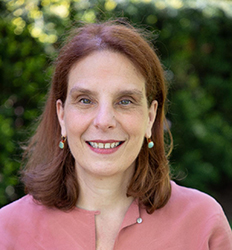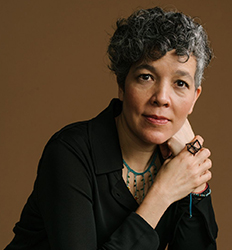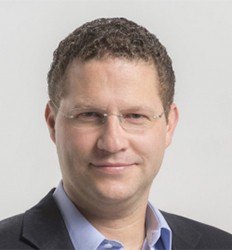Event Recap
Extreme heat is the climate-driven hazard that kills more people than any other. The recent heatwaves in Europe and the U.S. have produced enormous human, economic and environmental devastation. They have also generated a growing awareness about these climate hazards becoming more frequent, severe, and longer in the future, which reinforces the urgent need to activate top global leaders and organizations to embark on a “global crusade” to tackle extreme heat-related risks.
It is in cities where the threat and impacts from heat are most visible, and mayors from around the world are showing extraordinary leadership on the implementation of innovative tailored-made solutions to address extreme heat. However, mayors have also realized that effective local action should be accompanied by a Global Heat Advocacy Strategy aimed at delivering an urgent global call to action and mobilizing national governments, international organizations, International Financial Institutions, the private sector, NGOs, and academia to embrace the urban heat agenda as a priority and support cities to address extreme heat-related impacts through concrete actionable solutions.
This 60-minute panel session featured representatives from different cities showcasing their local best practices, as well as the leadership with which they are advocating for an effective global urban extreme heat agenda.
Panelists:
- Laura Ballesteros, Secretary of Sustainable Development, City of Monterrey, Mexico
- Cristina Huidobro, Chief Heat Officer, City of Santiago de Chile
- Eleni Myrivili, Global Chief Heat Officer, UN Habitat
- Surella Segu, Chief Heat Officer, City of Monterrey, Mexico
- Moderator: Mauricio Rodas, former Mayor of Quito; Visiting Scholar, Penn IUR, Perry World House, and Kleinman Center for Energy Policy; Senior Fellow, Adrienne Arsht-Rockefeller Foundation Resilience Center
About Our Panelists:

Laura Ballesteros, Secretary of Sustainable Development, City of Monterrey, Mexico
Laura Ballesteros is an expert in incidence, policy, and regulation in road safety, mobility, and urban affairs. A former Congresswoman at Mexico's City Local Assambly (ALCDMX), during the period between 2012-2015, she got passed the new Mobility Law, establishing mobility and road safety as top priority for public planning and budget and creating the Sustainable Mobility Minister.
Laura also worked in Mexico City as Undersecretary of Planning in the Ministry of Mobility of Mexico City, and Head of the New Mobility Model, between 2015-2018. As a collective effort with NGOs, she led a coalition to build Mexico's City Road Safety policy, adopting the Vision Zero philosophy–decreasing 35% road fatalities. She is deeply involved in the NGO's urban causes, with a wide national and international network. Currently, Laura is a substitute Senator for the period 2018–2024.
Since 2018, she’s been Global Secretary of the "Women in Montion" Center for Sustainable Leadership for Women initiative. From 2020 to 2021, she performed as Coordinator for Mexico of the Bloomberg Global Initiative for Road Safety. She’s currently the Secretary for Sustainable Urban Development of the city of Monterrey.

Cristina Huidobro, Chief Heat Officer, City of Santiago de Chile
Cristina Huidobro is an architect with a bachelor’s degree from the Pontificia Universidad Católica de Chile and a master’s degree in Urban Planning from the University of Maryland. She has 15 years of experience in project coordination in public policy, urban planning, and local development, both at the municipal and regional levels. Her professional experience has focused on cities, resilience, water management, climate change, and extreme heat.
Currently, Cristina is the Chief Resilience Officer responsible for implementing Santiago´s Resilience Strategy, and the Chief Heat Officer responsible for implementing the Heat Action Plan for the Santiago Metropolitan Region.

Eleni Myrivili, Global Chief Heat Officer, UN Habitat
Eleni Myrivili wants cities to prepare for extreme heat by developing and adopting climate adaptation and mitigation strategies. For her, this work starts in her home city of Athens, where she was appointed Europe’s first Chief Heat Officer in 2021. She's been using the position to raise awareness of the dangers of extreme heat and co-create and co-design a greener, cooler future for all.
In June 2022, through her role as a senior advisor at Arsht Rock Resilience Center and following an MoU Arsht Rock signed with the UN-Habitat, she was named the first-ever Global Chief Heat Officer to work in promoting a heat resilience agenda at UN-Habitat, the United Nations' program for human settlements and sustainable urban development.
Myrivili has advocated for an environmental, nature-positive, and climate-neutral agenda for more than two decades. A tenured assistant professor at the University of the Aegean, she was elected and has served as Deputy Mayor for the City of Athens where she designed the "Athens Resilience Strategy for 2030” with the collaboration of hundreds of Athens residents.

Surella Segu, Chief Heat Officer, City of Monterrey, Mexico
Surella Segu is Monterrey’s Chief Heat Officer, is a Harvard GSD Loeb Fellow, an Architect from Monterrey’s Tech (ITESM) and has a Master of Science in Architecture and Urban Design from Columbia University in New York. She is a Fulbright recipient and Young Creators from FONCA. She is currently a member of the National Art Creators System from CONACULTA. Her work has been selected for several international Architecture and Urban Biennials and exhibitions, and also has been published in national and international publications.
For more that 10 years, she has been a professor in several Universities in Mexico, like Universidad Iberoamericana, Anahuac and Centro, and has participated in national and international university juries and workshops. From 2013 to 2016 she was in charge of Infonavit’s Urban Development Area, where she was responsible for the generation and implementation of urban strategies and regeneration programs in deteriorated housing complexes and abandoned housing nationwide; the development of measurement tools for housing deterioration; and comparative research on international best practices, as well as research on the impact of programs aimed to improving the capacities of the communities in these developments.
She is currently conducting a research on common/public space as possible activator of sustainable urban environments, from a gendered perspective, in formal and informal settlements.

Mauricio Rodas, former Mayor of Quito; Visiting Scholar, Penn IUR, Perry World House, and Kleinman Center for Energy Policy; Senior Fellow, Adrienne Arsht-Rockefeller Foundation Resilience Center
Mauricio Rodas served as the mayor of Quito, Ecuador from 2014 to 2019. He is a visiting scholar at Penn Institute for Urban Research, Perry World House, and Kleinman Center for Energy Policy. He is a Senior Fellow at the Adrienne Arsht-Rockefeller Foundation Resilience Center at the Atlantic Council, and co-chair of the World Economic Forum’s Global Commission on BiodiverCities by 2030. Rodas is also a member of the United Nations’ Committee of Experts on Public Administration; a distinguished fellow on global cities at the Chicago Council on Global Affairs; and a member of the advisory committee of the Global Parliament of Mayors. In 2019, he was named one of Apolitical’s “100 Most Influential People on Climate Action” and received the University of Pennsylvania’s World Urban Leadership Award. He is a former Young Global Leader and member of the Global Future Council on Cities and Urbanization of the World Economic Forum. During his mayoral term in Quito, Rodas hosted the UN’s Conference on Urban Sustainable Development – Habitat III. He also served two terms as world co-president of UCLG; was vice-chair of C-40 Cities’ Climate Leadership Group; and was a member of the global boards of ICLEI and the Global Covenant of Mayors for Climate and Energy. In 2011, Rodas founded SUMA, a national political party in Ecuador, and in 2013 he ran for President of the Republic. In 2007, he founded and served as the executive director of Ethos Public Policy Lab, a think tank based in Mexico. Rodas holds a JD from Universidad Católica de Quito, and holds two master’s degrees in government administration and political science from the University of Pennsylvania, where he was a Fulbright Scholar.

